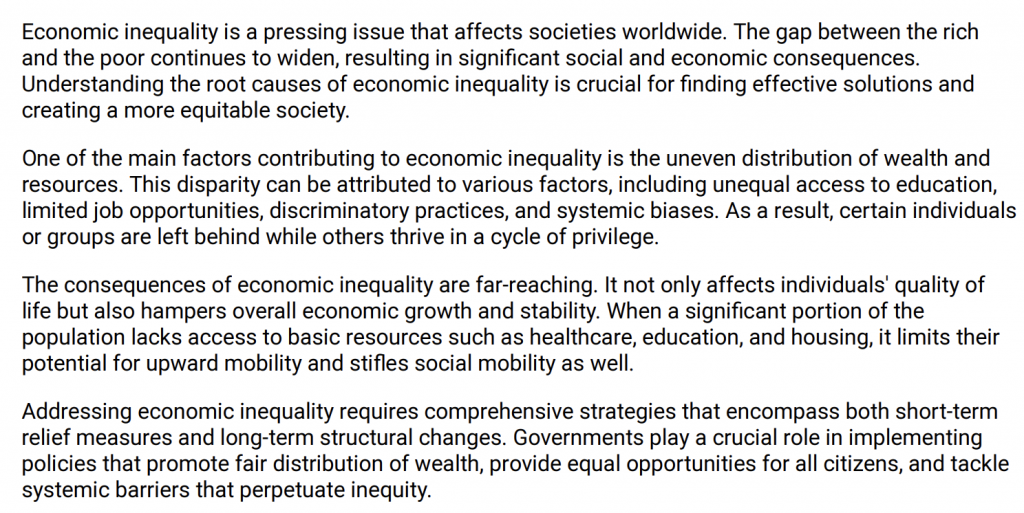Addressing Economic Inequality
Summary:
The document discusses the pressing issue of economic inequality, which has far-reaching social and economic consequences. It identifies the root causes of this inequality, such as uneven distribution of wealth, limited access to education, and systemic biases. The consequences of economic inequality extend beyond individual quality of life to affect overall economic growth and social mobility. To address this issue, the document suggests comprehensive strategies that include both short-term relief measures and long-term structural changes. Governments are identified as key players in implementing policies that promote fair wealth distribution and equal opportunities. Businesses also have a role in reducing inequality through fair labor practices and corporate social responsibility initiatives. The document proposes specific solutions like investing in education, implementing progressive taxation policies, and promoting inclusive economic growth. By adopting these multifaceted approaches, the document argues that we can work towards a more equitable society where everyone has a fair chance at success.
Excerpt:
Addressing Economic Inequality
Economic inequality is a pressing issue that affects societies worldwide. The gap between the rich and the poor continues to widen, resulting in significant social and economic consequences. Understanding the root causes of economic inequality is crucial for finding effective solutions and creating a more equitable society.
One of the main factors contributing to economic inequality is the uneven distribution of wealth and resources. This disparity can be attributed to various factors, including unequal access to education, limited job opportunities, discriminatory practices, and systemic biases. As a result, certain individuals or groups are left behind while others thrive in a cycle of privilege.
The consequences of economic inequality are far-reaching. It not only affects individuals’ quality of life but also hampers overall economic growth and stability. When a significant portion of the population lacks access to basic resources such as healthcare, education, and housing, it limits their potential for upward mobility and stifles social mobility as well.


Reviews